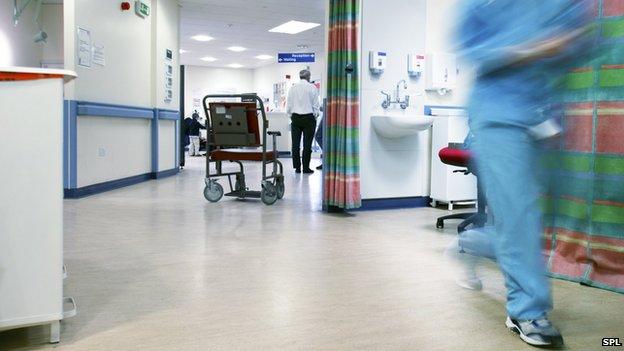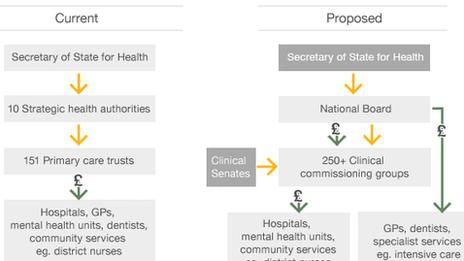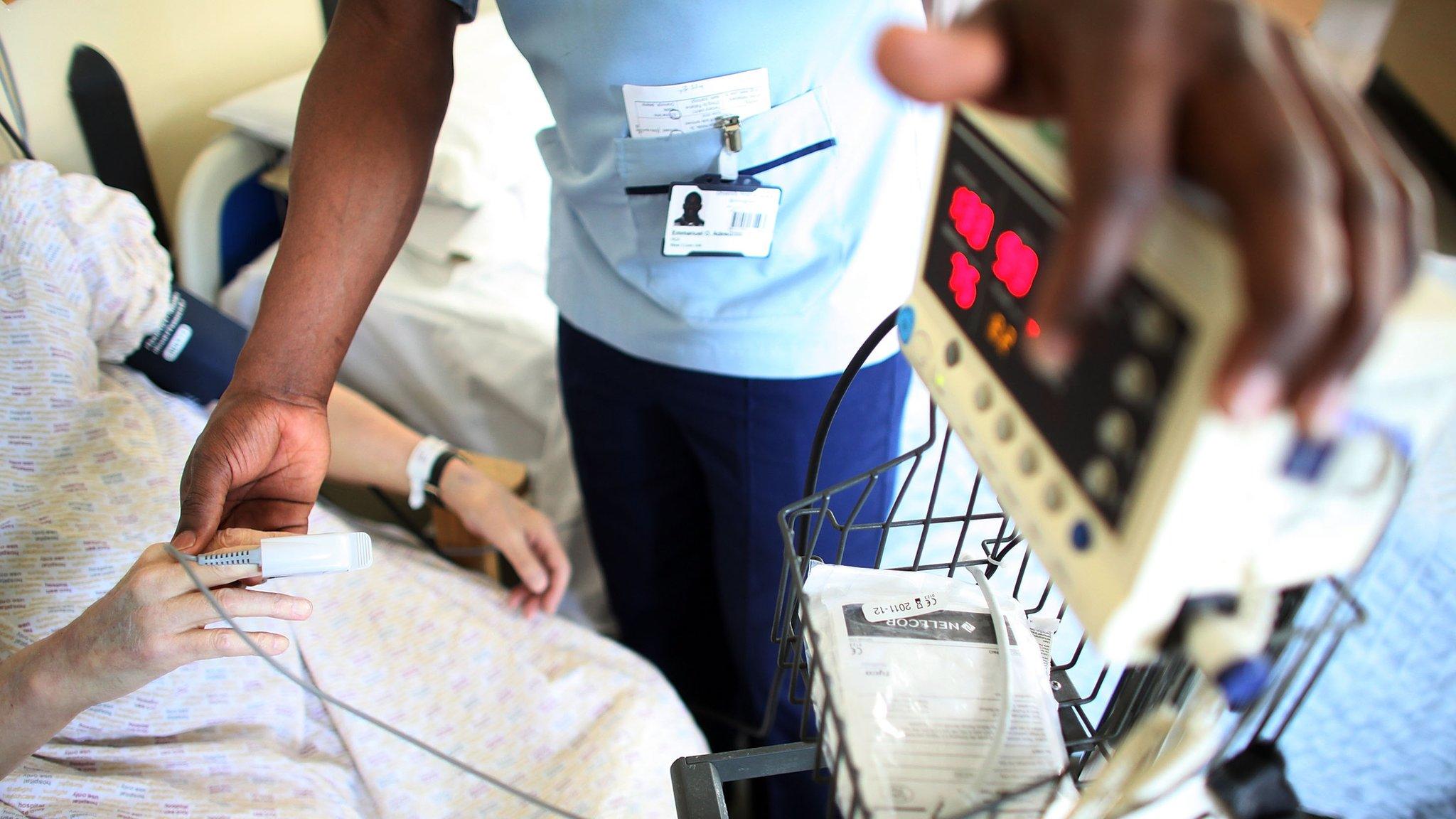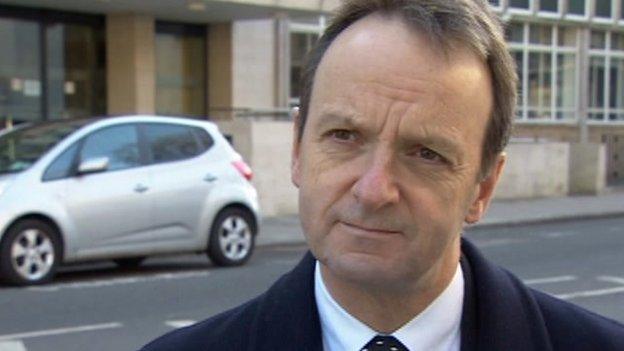Halt NHS privatisation, says Labour's Burnham
- Published
- comments

Labour has called for the NHS in England to stop privatising services until after the general election.
In a speech, shadow health secretary Andy Burnham said "privatisation is being forced through at pace and scale".
He said voters needed a "proper debate" about the future of the NHS.
The government called this "pure political posturing" from a party with a record of privatisation when it was in power.
Labour argues the restructuring of the NHS, which came into force in 2013, led to privatisation by the back door.
This includes plans for the biggest outsourcing deal in NHS history which could see cancer care across Staffordshire privatised as part of a £1.2bn contract.
Consent
The Department of Health said that since 2010 a further 1.3% of the NHS budget was being spent in the private sector, with the total standing at about 6%.
Andy Burnham says 'NHS is based on people, not profits'
In his speech, Mr Burnham said: "Commissioners have been ordered to put all services out to the market, NHS spending on private and other providers has gone through the £10bn barrier for the first time.
"When did the British public ever give their consent for this?
"It is indefensible for the character of the country's most valued institution to be changed in this way without the public being given a say."
Mr Burnham has written to the boss of NHS England, Simon Stevens, to call for a pause in privatisation unless patient safety or service is at risk.
However, NHS England said most funding decisions were now being made by groups of GPs, who were given the purse-strings in the NHS reforms.
'Posturing'
A government spokesman said Mr Burnham was playing politics and pointed to his record of privatisation while he was health secretary in the last Labour government.
"Use of the private sector by the NHS doubled in the last four years of Labour, a far bigger increase than under this government.
"Andy Burnham himself signed off the privatisation of Hinchingbrooke Hospital during Labour's final year so it is pure political posturing to try to interfere with doctors making the best clinical judgements for patients."

Matt Tee, chief operating officer of the NHS Confederation, which represents NHS Trusts, said the argument should be about what is right for patients.
He said: "Our members are very clear that there are plenty of things which keep them awake at night, but contracting is rarely cited as one of them."
Dr Steve Kell, one of the chairs of the group NHS Clinical Commissioners, said: "I am quite clear that no clinical commissioning group [CCG] has a privatisation agenda."
"CCGs are independent statutory bodies with a clear focus to improve services for our patients - to stop clinical commissioners from signing contracts where a local need has been identified will leave gaps in local clinical services putting patients at risk."
- Published1 March 2013

- Published18 July 2013

- Published15 January 2014

- Published3 March 2013

- Published30 May 2014
